 November 13,
2018. One of
our graduates,
Fred Kasongu,
owns FRECA, a
heavy machinery
construction company.
Freca Mining and Manufacturing
Ltd has been in the
industry for over 11 years now.
The company deals into mining,
transport, hired labour,
civil, construction, electrical,
mechanical and Block
manufacturing.
The company labour force
has over the years grown
extremely big from a handful
number of employees to over
1500 employees. However,
Freca Mining Ltd has currently
extended its work activities to
other independent companies
like Lumwana Mine, a company
owned and operated by
Barrick, an Australian Pacific and Canadian based organisation
and Kalumbila Mine.
Freca Mining and Manufacturing
Limited is one of
the five contractors that have
been contracted by Kansanshi
Mining Plc to construct over
3000 homes at the Kabitaka
Ridge Housing Development.
Freca will construct 100
houses in the first phase that
will see 380 homes completed
in 12 months’ time. This phase
will cost $ 4 Million. In the
second phase Freca will then
construct 600 houses at a cost
of $ 24 Million. ...
You can read more about
this company here: http://www.
frecamining.com
Fred Kasongu completed a
Bachelor’s, Master’s and Doctorate
program with us at AIU,
and is currently completing
his Post-Doctorate program in
Mining Management.
November 13,
2018. One of
our graduates,
Fred Kasongu,
owns FRECA, a
heavy machinery
construction company.
Freca Mining and Manufacturing
Ltd has been in the
industry for over 11 years now.
The company deals into mining,
transport, hired labour,
civil, construction, electrical,
mechanical and Block
manufacturing.
The company labour force
has over the years grown
extremely big from a handful
number of employees to over
1500 employees. However,
Freca Mining Ltd has currently
extended its work activities to
other independent companies
like Lumwana Mine, a company
owned and operated by
Barrick, an Australian Pacific and Canadian based organisation
and Kalumbila Mine.
Freca Mining and Manufacturing
Limited is one of
the five contractors that have
been contracted by Kansanshi
Mining Plc to construct over
3000 homes at the Kabitaka
Ridge Housing Development.
Freca will construct 100
houses in the first phase that
will see 380 homes completed
in 12 months’ time. This phase
will cost $ 4 Million. In the
second phase Freca will then
construct 600 houses at a cost
of $ 24 Million. ...
You can read more about
this company here: http://www.
frecamining.com
Fred Kasongu completed a
Bachelor’s, Master’s and Doctorate
program with us at AIU,
and is currently completing
his Post-Doctorate program in
Mining Management.
 November 5, 2018.
The mother of Sivarajasingam
Mahendran,
one of our graduates,
was conferred a special
recognition award for
being an exemplary
mother by the President of
Singapore, Her Excellency,
Mdm Halimah and Jamiyah
Singapore (a not for profit
self-help Muslim group). The
news has appeared in their local
Straits Times newspaper.
His mother was the main motivating factor to
complete his Doctoral
studies at AIU and she
always exhorted him
and his siblings to keep
on learning for life and
climbing the ladder of
success. She has always been
their best motivator and nurtured
them through the years
after his (late) father passed
on, since 1985.
The Exemplary Mother
Award honours mother,
regardless of race or religion,
for their dedication in making
a difference to their family
and community. The chosen
Exemplary Mother will have
her name inscribed on the
Presidential Shield that goes
for 12 rounds each.
Sivarajasingam Mahendran
completed a Doctorate program
of Education at AIU.
Dr. Siva wrote a poem in
recognition of her dedication
and motherly love. You can
read it here: https://aiu.edu/
news.aspx?itemid=1154
November 5, 2018.
The mother of Sivarajasingam
Mahendran,
one of our graduates,
was conferred a special
recognition award for
being an exemplary
mother by the President of
Singapore, Her Excellency,
Mdm Halimah and Jamiyah
Singapore (a not for profit
self-help Muslim group). The
news has appeared in their local
Straits Times newspaper.
His mother was the main motivating factor to
complete his Doctoral
studies at AIU and she
always exhorted him
and his siblings to keep
on learning for life and
climbing the ladder of
success. She has always been
their best motivator and nurtured
them through the years
after his (late) father passed
on, since 1985.
The Exemplary Mother
Award honours mother,
regardless of race or religion,
for their dedication in making
a difference to their family
and community. The chosen
Exemplary Mother will have
her name inscribed on the
Presidential Shield that goes
for 12 rounds each.
Sivarajasingam Mahendran
completed a Doctorate program
of Education at AIU.
Dr. Siva wrote a poem in
recognition of her dedication
and motherly love. You can
read it here: https://aiu.edu/
news.aspx?itemid=1154
 October 23,
2018. One of
our graduates,
Addis-Alem
Belay, wrote
his thesis on:
“The Influence of Leadership
Style and Staff Retention in
UK Public Sector”, and it has
been published.
You can read his work here:
http://www.aiu.edu/applications/
DocumentLibraryManager/
upload/82478_PhD%20HRM%20
AND%20FINANACE%2017-08-
2018.pdf
Addis completed a Doctor of
Philosophy, PhD program with
a major in Human Resources
Management at AIU.
October 23,
2018. One of
our graduates,
Addis-Alem
Belay, wrote
his thesis on:
“The Influence of Leadership
Style and Staff Retention in
UK Public Sector”, and it has
been published.
You can read his work here:
http://www.aiu.edu/applications/
DocumentLibraryManager/
upload/82478_PhD%20HRM%20
AND%20FINANACE%2017-08-
2018.pdf
Addis completed a Doctor of
Philosophy, PhD program with
a major in Human Resources
Management at AIU.
 November, 2018.
This graduate student
completed the majority
of the requirements
to obtain honors,
which included a 4.0
GPA, published works,
recommendation from
his advisors, patent
a product, etc.
Congratulations!
November, 2018.
This graduate student
completed the majority
of the requirements
to obtain honors,
which included a 4.0
GPA, published works,
recommendation from
his advisors, patent
a product, etc.
Congratulations!
 By Johanna Marie O. Bajenting.
SunStar CEBU. November
18, 2018. For a returning
seafarer, sea trips are an option
for commuters struggling to get
to work on time.
This is what Nelson Mejia
Jr., 27, envisioned when he
presented his startup idea at
the business plan competition
organized by the 2018 National
Reintegration Center for OFWs
(overseas Filipino Workers)
(NRCO) and the Integrated
Seafarers of the Philippines.
“To emphasize my point of
how extremely challenging it
is for the commuting public to
get a ride in Cebu City, I even
highlighted in my video the
non-peak hours from 11 a.m.
to 2 p.m., when most assume
that the traffic condition during
these hours is light and manageable. But it turned out
that getting a ride even during
what is considered non-rush
hours is still very inconvenient
and tough,” he said.
His proposal entitled,
“Metro Cebu Express: A Water
Bus Liner Service,” aims to
ease the difficulties faced by
the riding public due to traffic
congestion in the city.
Mejia, who represented
Central Visayas, bested nine
other contestants during the
national competition.
The idea involved the
maritime shipping industry
in providing a solution to the
growing concern of traffic.
With the use of water vessels,
Mejia proposed to ferry
passengers from Pier 3 in
Cebu City to Talisay City and
vice versa.
He said he will launch the
design of the vessel by the first
week of December.
Mejia said that during the
contest, he made sure to interact
with the panel of judges
to highlight his points and not
just merely present his report.
“I saw to it that the presentation
of my business plan
was interactive, involving the
participation of the members
of the panel of judges. I did
not want to appear as if I was
just merely reporting to them.
I wanted them to realize in the
process, the potential and viability
of my business proposal
in reducing the burden of
the ordinary commuters, who
struggle to get a ride in the
midst of the worsening traffic
conditions in Cebu,” he said.
Mejia has a doctorate in
maritime affairs from the Atlantic
International University
in Hawaii.
By Johanna Marie O. Bajenting.
SunStar CEBU. November
18, 2018. For a returning
seafarer, sea trips are an option
for commuters struggling to get
to work on time.
This is what Nelson Mejia
Jr., 27, envisioned when he
presented his startup idea at
the business plan competition
organized by the 2018 National
Reintegration Center for OFWs
(overseas Filipino Workers)
(NRCO) and the Integrated
Seafarers of the Philippines.
“To emphasize my point of
how extremely challenging it
is for the commuting public to
get a ride in Cebu City, I even
highlighted in my video the
non-peak hours from 11 a.m.
to 2 p.m., when most assume
that the traffic condition during
these hours is light and manageable. But it turned out
that getting a ride even during
what is considered non-rush
hours is still very inconvenient
and tough,” he said.
His proposal entitled,
“Metro Cebu Express: A Water
Bus Liner Service,” aims to
ease the difficulties faced by
the riding public due to traffic
congestion in the city.
Mejia, who represented
Central Visayas, bested nine
other contestants during the
national competition.
The idea involved the
maritime shipping industry
in providing a solution to the
growing concern of traffic.
With the use of water vessels,
Mejia proposed to ferry
passengers from Pier 3 in
Cebu City to Talisay City and
vice versa.
He said he will launch the
design of the vessel by the first
week of December.
Mejia said that during the
contest, he made sure to interact
with the panel of judges
to highlight his points and not
just merely present his report.
“I saw to it that the presentation
of my business plan
was interactive, involving the
participation of the members
of the panel of judges. I did
not want to appear as if I was
just merely reporting to them.
I wanted them to realize in the
process, the potential and viability
of my business proposal
in reducing the burden of
the ordinary commuters, who
struggle to get a ride in the
midst of the worsening traffic
conditions in Cebu,” he said.
Mejia has a doctorate in
maritime affairs from the Atlantic
International University
in Hawaii.
| Joao Paulo Rosa Master of Science Environmental Health and Safety Angola |
Dulce Manuela Antunes de Oliveira Doctor of Philosophy Human Res ources Angola |
Luis Alberto Del Valle Weckesser Bachelor of Science Ports Safety and Antiterrorism Argentina |
Marcelo Ramón Mannú Master of Science Political Science Argentina |
Ngolong Emmanuel Jonas Master of Science Nutrition Science Cameroon |
Ohagwu Onyinye Emmanuel Master of Science Computer Science Canada |
| Djerandouba Yotobumbeti Doctor of Social and Human Studies Public Health Chad |
Jorge Marcelino Navarro Gallardo Bachelor of Science Civil Enginee ring Chile |
Carlos Ramos Carrillo Master of Education Linguistics Colomb ia |
Fiorella Donado Osío Doctor of Literature Latin American Language and Culture Colomb ia |
Ricardo Alberto Prieto Erazo Master of Science Mechanical Enginee ring Colomb ia |
Orlando Oscar Pasin Azerrad Bachelor of Science Architecture Germany |
| Carlos Alberto Orozco Orozco Master of Business Adm inistration Business Administration Guatemala |
John Patrick Oketch Master of Science Che mical Enginee ring Kenya |
Karine Kimberly Alexandra Meyers Master of Business Adm inistration Marketing Netherlands Antilles |
Mela Bamiji Bachelor of Arts International Business Nigeria |
Chukwu, Chinedu Jude Doctor of Project Management Project Management Nigeria |
Douglas Doe Audu Bachelor of Science Energy Nigeria |
| Akinola Oladipo Akinsola Doctor of Management Strategic Management Nigeria |
Segun Oyeniyi Master of Science Information Technology Nigeria |
Hoodo Abdillahi Mohammed Bachelor of International Relations Economic Development & Politics North Somalia |
Roberto Martínez Suarez Doctor of Philosophy Healthcare Administration Puerto Rico |
Ajayi Oluwakemi Deborah Doctor of Philosophy International Relations Russia |
Peter Nuyaba Sam-Kpakra Master of Arts Project Management Sierra Leone |
| David Ayaga Aburko Bachelor of Science Public Health South Sudan |
Sergio Gracia Ledesma Bachelor of Science Civil Enginee ring Spain |
Thelma Khombi Nkonde Doctor of Science Public Health Swaziland |
Yeliz Daşan Bachelor of Science Business Administration Turkey |
Mulumba Julius Doctor of Science Structural Enginee ring Uganda |
Edward Mike Ndawula Master of Science Electrical Power Systems Enginee ring Uganda |
| Khaled M. Elabed Master of Science Political Science United Arab Emirates |
Gastón Adrian Pagano Peralta Associate of Business Adm inistration Marketing Uruguay |
Manuel José Ostia Lasso Bachelor of Science Psychology USA |
Yenny A. Ramirez Master of Arts Interior Des ign USA |
Alaa A. El-Halwagy Doctor of Business Adm inistration Business Administration USA |
Martha Ximena Niembro Nieto Bachelor of Science Nutrition USA |
| William A. Rorech Bachelor of Science Electrical Enginee ring USA |
Isaac Changaya Bachelor of Metrology Legal Metrology Zamb ia |
Mildred Lwanga Mwansa Mwila Master of International Relations International Relations Zamb ia |
Charles Mutangirwa Doctor of Business Adm inistration Business Administration Zimb abwe |
||
 Hendick Henzilzs Silien
Hendick Henzilzs Silien  Ezekiel Mutopa
Ezekiel Mutopa Jamil Ibrahim Othman Falatah
Jamil Ibrahim Othman Falatah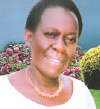 Joyce Mudhungu
Joyce Mudhungu
Various attempts have
been made by scholars to
define the term “Educational
Technology”. A few of these
definitions are presented below
as follows:
(i) The Association of Educational
Communication and
Technology (AECT, 1979) defines
educational technology as "a
complex, integrated process
involving people, procedures,
ideas, and organization for analyzing
problems and devising,
implementing, evaluating and
managing solutions to those
problems involved in all aspects
of human learning".
(ii) According to Davies
(1978), educational technology
is "the development and
presentation of instructional
content using learning theories
with the aim of promoting
the achievement of predetermined
instructional objectives
and sub-systems that interact
to achieve educational goals."
In educational technology,
instructional materials of various
types are produced and
used for effective teachingleaning
activities. It makes
lessons real, concrete, nearer
home and clearer.
(iii) According to Sandoval,
V. For-lan (2010), Educational
Technology, also called Learning
Technology, is the study
and ethical practice of facilitating
learning and improving
performance by creating, using
and managing appropriate
technological processes and
resources, it includes other
systems used in the process of
developing human capability.
(iv) The Educational Technology
Act of US Congress,
quoted in Grayson, (1972: 883),
also, quoted in Unwin, D.
and McAleese (1978), defined
Educational Technology all
the hardware and software,
including television, radio,
electronic classroom, instructional
devices, still and
motion picture projectors,
computer-assisted or managed
instructional equipment and
materials, communications equipment for educational
application, and other equipment
and materials”... necessary
to assist the process
of learning. This definition
restricts the meaning of educational
technology to instructional
media, with emphasis
on the gadgets used in learning.
The concept of technology
in education is seen in terms
of physical products.
in Agun, and Imogie, (1988:2),
defined Educational Technology
as a systematic way of
designing, carrying out and
evaluating the total process
of learning and teaching in
terms of specific objectives,
based on research in human
learning and communication,
and employing a combination
of human and non-human
resources to bring about
more effective instruction. In
this definition, Educational
Technology is defined in terms
of the product and process of
technology as a way of organizing
materials and men.
(vi) Gagne (1968: 6) quoted
in Unwin, D & McAlesee
(1978:313), defined Educational
Technology as the development
of a set of systematic
techniques, and accompanying
practical knowledge for
designing, testing and operating
schools as educational
systems. ...It draws upon many
disciplines, including those
which design work space, like
architecture,... equipment, like
physical sciences; social environments,
like sociology and
anthropology ... administrative
procedures, like the science of
organizations and conditions
effective learning, like psychology.
This definition draws
attention to the various fields
that contribute to educational technology.
(vii) Rowntree, D, (1974: 2),
defined Educational Technology
as being concerned with
designing the system as a
whole; identifying aims and
objectives, planning the learning
environment, exploring
and structuring the subject
matter, selecting appropriate
teaching strategies and
learning media, evaluating the
effectiveness of the learning system and using
the insights gained
from evaluation to
improve that effectiveness
for the
future… This definition
outlines the various
operations that
are carried out in the
field of educational
technology.
The need for
standard definitions
and terms in the
field of educational
technology has
been the concern of
the Association for Educational Communication
and Technology in the United
States of America (A.E.C.T.).
After 14 years of research
work, the Association came
up with the most acceptable
and professional definition
of educational technology as
follows:
(viii) Educational Technology
is a complex, integrated
process involving people,
procedures, ideas, devices,
and organization for analyzing
problems, and devising,
implementing, evaluating
and managing solutions to
those problems involved in
all aspects of learning. In
educational technology, the
solutions to problems take
the form of all the “Learning
Resources” that are designed
and/or selected as Messages,
People, Materials, Devices,
Techniques and Settings.
The process for analyzing
problems and devising,
implementing and evaluating
solutions and identified by
the “Educational Development
Functions” of Research,
viz - Theory, Design, Production,
Evaluation, Selection,
Logistics, and Utilization. The
processes of directing or coordinating
one or more of these
functions are identified by the
“Educational Management
Functions” of Organization,
Management and Personnel
Management.
From these definitions, one
can make the following deductions
about Educational
Technology:
(i) It involves not only devices,
equipment, and media but also
people, procedures, ideas and
organization.
(ii) Emphasis is placed on a
systematic process of analyzing
problems and devising,
implementing, evaluating and
managing solutions to the
identified problems.
(iii) Educational technology
employs an integrated, holistic,
problem-solving approach.
(iv) The kind of problems that
concerns educational technology
are those problems that
pertain to all aspects of human
learning. It is concerned
with the total educational
environment not only with its
components.

When we are reading the
headline of this article
and we think: this scientist,
who is him? What has happiness
to do with him?
I start looking for who is
or was Ilya Prigogine and
increases my curiosity because
what have to do so-called
Hard Sciences with what is
happiness that is considered
a concept within the Human
Sciences. I like the relationship
because I like mathematics.
Let's see what the Hard Sciences
have to do with Human
Sciences; first of all who was
Ilya Prigogine.
Ilya Prigogine was one of
the great scientists of the last
century who even received a
Nobel Prize.
Prigogine was a scientist
born in Russia, naturalized
Belgian, who worked in
Chemistry and Physics. Born
in Moscow in 1917, he studied
Chemistry and Physics at the Brussels University and received
his PhD degree in 1941.
He devoted himself to the
study of irreversible phenomena
by creating new concepts
such as dissipative structures.
He received the Nobel Prize in
Chemistry in 1977 for his work
in Physics.
Prigogine is one of the scientists
who works in science
and considers that determinism,
as “this is a consequence
of this and nothing else”, does
not happen with the certainty
that had been considered in
science. Science is still divided
among the scientists who support
determinism, measurement
and those who put it on.
“As far as we know, some
phenomena are adequately described
by deterministic equations,
as is the case with planetary
movements, but others,
such as biological evolution,
involve stochastic processes”.
(Prigogine, 2009, p. 23).
According to Prigogine, in
sciences there are aspects that
are measurable, that remain
constant, and others, the
stochastic, which varies by
elements, such as time.
The fundamental concept
of the Prigogine proposal is
to distinguish phenomena in
the sciences that are not kept
constant to be measurable
and that the same system can
always be applied.
What this says is just an
illusion? That the sciences
were developed thanks to
the deterministic system,
thanks to introducing mathematics
to measure, but that
same science that created its development and found new
elements of knowledge also
has to look for new ways of
determining what is considered
scientific.
Faced with these new
discoveries of the behavior
of what nature offers, new
concepts must be created such
as: fluctuations, irreversibility
and finally what he called "dissipative
structures".
He tells us: “Our world is a
world of changes, exchanges
and innovation. To understand
it, a theory of the processes,
of the times of life, of the
principles and of the ends is
necessary; we need a theory
of qualitative diversity, of the
emergence of the qualitatively
new”. (Prigogine, 2009, pp. 70-71).
Prigogine is one of the scientists
whose works integrate the quantitative with the qualitative.
He accepted the measurement
offered by mathematics
but his thought was always that
there are other phenomena
that need more explanation
than mathematics. He worked
in the fields of physics and
chemistry but considered that
it was necessary to look for
ways for other phenomena that
already existed in the field of
those sciences.
His thought also took him
to the social and explained
the society within his great
research: “THE DISSIPATIVE
STRUCTURES” or THEORY OF
CHAOS.
Prigogine said: “It is evident
that a society is a non-linear
system in which what each
individual does has repercussions
and is amplified by
the effect of the socius. This
characteristic has increased
dramatically as a result of the
intensification of exchanges
of all kinds”. (Prigogine, 2009,
pp. 56-57).
Within the social the human
and happiness is given in the
human being.
According to Prigogine
dissipative structures are
processes of self-organization
within a system that is altered
by the influx of fluctuations.
“Indeed, when, instead of
disappearing, a fluctuation
increases within a system, beyond
the critical threshold of
stability, the system expresses
a deep transformation, adopts
a completely different mode of
operation, structured in time
and space, functionally organized.
What then emerges is
a process of self-organization,
what we have called "dissipative
structures”. (Prigogine,
2009, p. 89).
About life, he said:
“Life is certainly one of the most amazing manifestations
of this universal arrow
of time. From this point of
view, we can consider it as a
consequence of the existence
of irreversible processes, but
what I want to highlight is
that life, in turn, transmutes
this own situation, intrinsic to
the rupture of symmetry, to
objects of the physical world
that, without their intervention,
they would have a symmetrical
temporal behavior”.
(Prigogine, 2009, pp. 131-132).
Now begin the application
to life and to the happiness of
dissipative structures.
As human beings we are a
system, a system that is related
to other systems such as: the
governments, the culture of
which we are part, the friends
and our first system; parents.
According to Prigogine's
proposal, we are open systems
because we are related, we
let fluctuations in and these
fluctuations break the balance
and a new organization and a
new state is created.
What we have to do to build
our happiness is to identify
and know what fluctuations
will make us self-organize better
and better.
Happiness, what is it?
Happiness is growth and the
opportunity to achieve it. To
have an education throughout
life, to have a decent home, to
have the necessary medical assistance, to have the opportunity
of a job with just
compensation.
When we are far from being
happy, it is because we let in
our system, in our life, negative
fluctuations, that make us
self-organize towards aspects
that are far from giving us
satisfactions to the conditions
that make the human being
welfare to be better and therefore
be happy.
We can be self-destructing
or we can do every human
aspect better day by day.
We can think that living
in this or the other culture,
whose sign is violence, there is
no possibility of self-organizing
to be happy.
We can do it; what will
happen to us is: it will take us
more effort to maintain inner
peace to choose the best to
live satisfied with what we are
and on the way to growth as a
human being.
In this stage of your life,
who are you?
Do you identify who are you
as a human being?
Do you identify the systems
with which you relate?
Do you identify what goals
you want to achieve?
Do you know what can you
do to not self-destruct?
Do you have enough will,
to not let in to the system that
you are, the negative fluctuations
they come from wherever
they come?
What will you do so that
the fluctuations that enter in
the open system that you are
should be the best for selforganization
to be for your
happiness?
Go ahead! Let's build our
happiness! We are going to
generate self-organization, we
are going to go through the
chaos that is the changes that
are taking place until the balance
is broken and we reach
the new structure that allows
us to be happy!
We are living in fluctuations
everywhere and it seems
that they bring us into chaos;
it depends on us to organize
ourselves in such a way that
despite this chaos we are
building our happiness.
Let's do it! Goodbye to
destructive chaos and it comes
the chaos of self-organization
to be happy!
BIBLIOGRAPHY. Prigogine, I. (2009). ¿Tan solo una ilusión?.
Barcelona: Tusquest Editores.
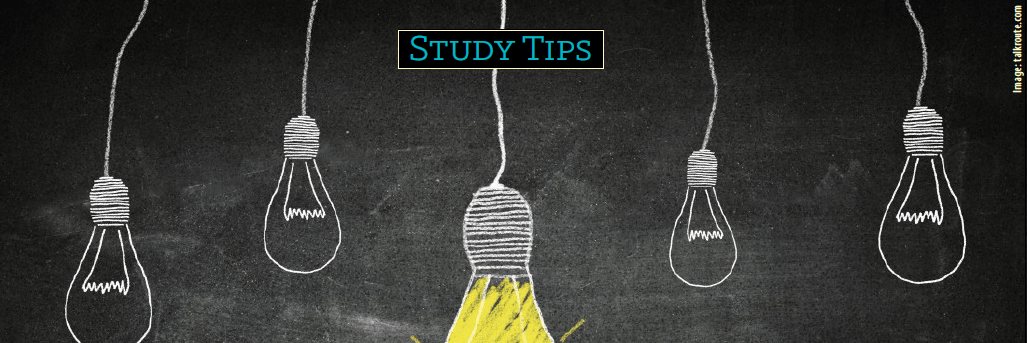
In these days where information is
digital, it is easy to copy text from
other sources into an assignment. It
is not good to copy text from sources.
Why?
The advisors at Atlantic International
University do not want to read
the words of another person. They
want to read words that come from
your life experience, from your brain,
from your soul.
The advisors want to see your life
in your essays. They want to see that
the knowledge is passing through your
brain and finding its own expression
within you. They want to see your
soul. They want
to perceive your
experience of life
on this earth.
The only way to
see you and your
life is by reading
your own words.
At AIU, we want to
read about your community.
We want to know about where you live
and where you work. We want to see
that you are applying the knowledge to
your community. It is good to include
case examples from your community
or work in your assignments.
If you write about
your community,
you will certainly
write with your own
words.
It is important
to note AIU uses a
very efficient internet
service to evaluate the
originality of an assignment.
We do not want to see more than
30% of your work coming from other
sources. We use 30% as the standard
for the internet evaluation because
some text is likely to found in other
writings even though it is original to you. So we give you some leeway.
However, you should write your assignments
using your own words.
If you are a student that is not confident
in your English, it is still best to
write in your own words. Your original
words will be appreciated more, even if
they are not written in perfect English.
We want to hear your voice through
your words.
At AIU, we see all students as unique
and unrepeatable. We recognize your
originality as a person on this earth
and in your community.
So, be original. Be yourself. Write
with your own words.
 For over 27,000 years, since the first
cave paintings were discovered,
telling stories has been one of our most
fundamental communication methods.
Recently a good friend of mine gave
me an introduction to the power of storytelling,
and I wanted to learn more.
Here is the science around storytelling
and how we can use it to make better
decisions every day.
We all enjoy a good story, whether
it's a novel, a movie, or simply something
one of our friends is explaining to
us. But why do we feel so much more
engaged when we hear a narrative
about events? It's in fact quite simple. If
we listen to a powerpoint presentation
with boring bullet points, a certain part
in the brain gets activated. Scientists
call this Broca's area and Wernicke's
area. Overall, it hits our language processing
parts in the brain, where we
decode words into meaning. And that's
it, nothing else happens.
When we are being told a story,
things change dramatically. Not only
are the language processing parts in
our brain activated, but any other area
in our brain that we would use when
experiencing the events of the story are
too. If someone tells us about how delicious
certain foods were, our sensory
cortex lights up. If it's about motion, our
motor cortex gets active: “Metaphors
like “The singer had a velvet voice” ...
For over 27,000 years, since the first
cave paintings were discovered,
telling stories has been one of our most
fundamental communication methods.
Recently a good friend of mine gave
me an introduction to the power of storytelling,
and I wanted to learn more.
Here is the science around storytelling
and how we can use it to make better
decisions every day.
We all enjoy a good story, whether
it's a novel, a movie, or simply something
one of our friends is explaining to
us. But why do we feel so much more
engaged when we hear a narrative
about events? It's in fact quite simple. If
we listen to a powerpoint presentation
with boring bullet points, a certain part
in the brain gets activated. Scientists
call this Broca's area and Wernicke's
area. Overall, it hits our language processing
parts in the brain, where we
decode words into meaning. And that's
it, nothing else happens.
When we are being told a story,
things change dramatically. Not only
are the language processing parts in
our brain activated, but any other area
in our brain that we would use when
experiencing the events of the story are
too. If someone tells us about how delicious
certain foods were, our sensory
cortex lights up. If it's about motion, our
motor cortex gets active: “Metaphors
like “The singer had a velvet voice” ...
 Snapchat Dysmorphia. n. A fixation
on perceived flaws in one’s appearance,
caused by seeing too many filtered
photos.
People used to show up in plastic
surgeons’ offices with photos of movie
stars, asking for Angelina’s lips or Jon
Hamm’s chin. Today they come with
selfies, asking to look like themselves.
Not the human selves that mock us
all in fitting-room mirrors, of course,
but the sparkling, digitally embellished
versions that increasingly populate our
social feeds.
On platforms like Snapchat and
Instagram, users now routinely deploy
filters and tools like Facetune for selfieimprovement,
fashioning reflections
that better capture their true inner
beauty. Swipe away acne or wrinkles.
Swipe again for big soulful eyes, a
thinner nose. You can even change the
shape of your face.
Such fixes used to be just for glamour
shots of celebrities. But nowadays,
with flawless skin and symmetrical
faces all over social media, the “beautiful
people” are our peers. It’s enough
to give you a complex. In fact, doctors
have begun to speak of “Snapchat dysmorphia,”
an obsession with normal
imperfections that, for teens especially,
can cause real harm. And it’s
driving many to seek surgery, in hopes
of editing their faces IRL like they do
on their phones. ...
Read full text:
Snapchat Dysmorphia. n. A fixation
on perceived flaws in one’s appearance,
caused by seeing too many filtered
photos.
People used to show up in plastic
surgeons’ offices with photos of movie
stars, asking for Angelina’s lips or Jon
Hamm’s chin. Today they come with
selfies, asking to look like themselves.
Not the human selves that mock us
all in fitting-room mirrors, of course,
but the sparkling, digitally embellished
versions that increasingly populate our
social feeds.
On platforms like Snapchat and
Instagram, users now routinely deploy
filters and tools like Facetune for selfieimprovement,
fashioning reflections
that better capture their true inner
beauty. Swipe away acne or wrinkles.
Swipe again for big soulful eyes, a
thinner nose. You can even change the
shape of your face.
Such fixes used to be just for glamour
shots of celebrities. But nowadays,
with flawless skin and symmetrical
faces all over social media, the “beautiful
people” are our peers. It’s enough
to give you a complex. In fact, doctors
have begun to speak of “Snapchat dysmorphia,”
an obsession with normal
imperfections that, for teens especially,
can cause real harm. And it’s
driving many to seek surgery, in hopes
of editing their faces IRL like they do
on their phones. ...
Read full text:
 For many astronomers, 2018 will
be remembered as the Year of the
Cow —after the nickname of a spectacular
stellar explosion that has kept
them busy for months.
The unusual event has offered an
unprecedented window on to the collapse
of a star, two teams of researchers
suggest in papers submitted to the
arXiv preprint server on 25 October.
Contrary to the slow ramp-up of a
typical supernova, Cow —technically,
the event AT2018cow— became stupendously
bright essentially overnight,
leaving astronomers perplexed.
“It popped up out of nowhere,” says
Stephen Smartt, an astronomer at
Queen’s University Belfast, UK, who
first discovered the explosion, and
who named it according to an alphabetical
protocol that just happened to
spell out the word ‘cow’.
This is “the dream” for those who
study stellar explosions, adds Raffaella
Margutti, an astrophysicist at
Northwestern University in Evanston,
Illinois, who led one of the teams
behind the latest two papers.
Through independent observations,
the two groups behind the latest
papers have now arrived at the same
conclusion: that a ‘central engine’ has
kept agitating the exploding star from
the inside for months and that the
energy must have come from either a
newly formed black hole in the process
of accreting matter, or the frenetic
rotation of a neutron star.
Black holes and neutron stars are
both born ...
For many astronomers, 2018 will
be remembered as the Year of the
Cow —after the nickname of a spectacular
stellar explosion that has kept
them busy for months.
The unusual event has offered an
unprecedented window on to the collapse
of a star, two teams of researchers
suggest in papers submitted to the
arXiv preprint server on 25 October.
Contrary to the slow ramp-up of a
typical supernova, Cow —technically,
the event AT2018cow— became stupendously
bright essentially overnight,
leaving astronomers perplexed.
“It popped up out of nowhere,” says
Stephen Smartt, an astronomer at
Queen’s University Belfast, UK, who
first discovered the explosion, and
who named it according to an alphabetical
protocol that just happened to
spell out the word ‘cow’.
This is “the dream” for those who
study stellar explosions, adds Raffaella
Margutti, an astrophysicist at
Northwestern University in Evanston,
Illinois, who led one of the teams
behind the latest two papers.
Through independent observations,
the two groups behind the latest
papers have now arrived at the same
conclusion: that a ‘central engine’ has
kept agitating the exploding star from
the inside for months and that the
energy must have come from either a
newly formed black hole in the process
of accreting matter, or the frenetic
rotation of a neutron star.
Black holes and neutron stars are
both born ...
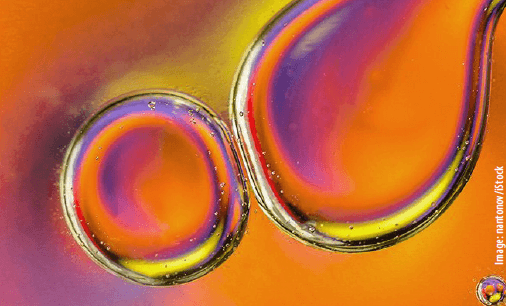 No matter how abundant or renewable,
solar power has a thorn
in its side. There is still no cheap and
efficient long-term storage for the
energy that it generates.
The solar industry has been snagged
on this branch for a while, but in the
past year alone, a series of four papers
has ushered in an intriguing new solution.
Scientists in Sweden have developed
a specialised fluid, called a solar
thermal fuel, that can store energy
from the sun for well over a decade.
“A solar thermal fuel is like a
rechargeable battery, but instead of
electricity, you put sunlight in and
get heat out, triggered on demand,”
Jeffrey Grossman, an engineer works
with these materials at MIT explained
to NBC News. The fluid is actually a
molecule in liquid form that scientists
from Chalmers University of Technology,
Sweden have been working on
improving for over a year.
This molecule is composed of carbon,
hydrogen and nitrogen, and when
it is hit by sunlight, it does something
unusual: the bonds between its atoms
are rearranged and it turns into an
energised new version of itself, called
an isomer. Like prey caught in a trap,
energy from the sun is thus captured
between the isomer's strong chemical
bonds, and it stays there even when ...
No matter how abundant or renewable,
solar power has a thorn
in its side. There is still no cheap and
efficient long-term storage for the
energy that it generates.
The solar industry has been snagged
on this branch for a while, but in the
past year alone, a series of four papers
has ushered in an intriguing new solution.
Scientists in Sweden have developed
a specialised fluid, called a solar
thermal fuel, that can store energy
from the sun for well over a decade.
“A solar thermal fuel is like a
rechargeable battery, but instead of
electricity, you put sunlight in and
get heat out, triggered on demand,”
Jeffrey Grossman, an engineer works
with these materials at MIT explained
to NBC News. The fluid is actually a
molecule in liquid form that scientists
from Chalmers University of Technology,
Sweden have been working on
improving for over a year.
This molecule is composed of carbon,
hydrogen and nitrogen, and when
it is hit by sunlight, it does something
unusual: the bonds between its atoms
are rearranged and it turns into an
energised new version of itself, called
an isomer. Like prey caught in a trap,
energy from the sun is thus captured
between the isomer's strong chemical
bonds, and it stays there even when ...
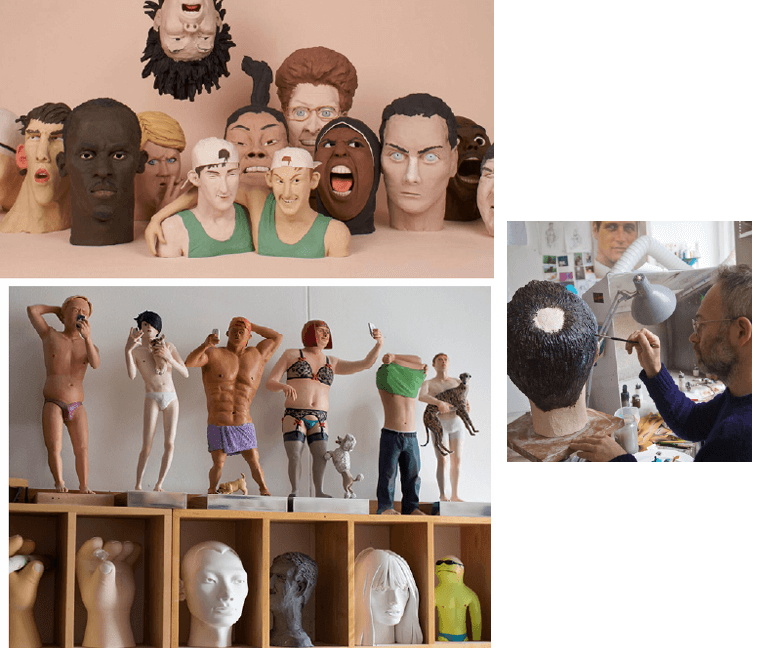
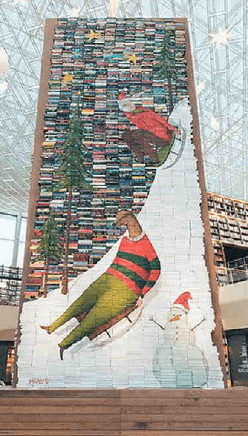
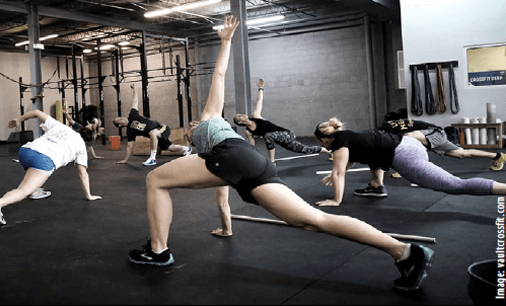 “Dude, I think something is out of
whack with my hormones,” I tell my
workout buddy, as I walk towards my
CrossFit box for the second time in
one day. ...
All was well until a subtle shift started
happening inside my body. I felt
off. Even after 8 or 9 hours of sleep, I’d
wake up wiped and craving coffee. ... I
phoned a doctor friend, who suspected
that all the high-intensity exercise was
messing with my cortisol —you know,
that pesky stress hormone— levels.
She was right. Here’s the low-down on
the hormone, how exercise impacts it,
and what to do if flare-ups leave you
feeling... off.
Cortisol is in charge of regulating
changes in the body that happen in
response to anxiety and tension, and
it plays a role in managing our bodies
fight-or-flight response. “Cortisol is
secreted by the adrenal glands, which
are little glands on top of your kidneys
that look like hats,” says Kecia Gaither,
MD, MPH, FACOG. “Your cortisol levels
naturally rise and fall throughout the
day. For most people, cortisol spikes in
the morning when you first wake up,
lulls in the afternoon, and may spike
again in the late evening.” ...
When your hormonal levels are ...
out of balance, you might experience
fatigue, insomnia, irregular periods,
increased appetite, problems with blood
sugar regulation, weight gain, increased
inflammation, and decreased libido,”
says Robin Berzin, MD, founder and
CEO ...
Read full text:
“Dude, I think something is out of
whack with my hormones,” I tell my
workout buddy, as I walk towards my
CrossFit box for the second time in
one day. ...
All was well until a subtle shift started
happening inside my body. I felt
off. Even after 8 or 9 hours of sleep, I’d
wake up wiped and craving coffee. ... I
phoned a doctor friend, who suspected
that all the high-intensity exercise was
messing with my cortisol —you know,
that pesky stress hormone— levels.
She was right. Here’s the low-down on
the hormone, how exercise impacts it,
and what to do if flare-ups leave you
feeling... off.
Cortisol is in charge of regulating
changes in the body that happen in
response to anxiety and tension, and
it plays a role in managing our bodies
fight-or-flight response. “Cortisol is
secreted by the adrenal glands, which
are little glands on top of your kidneys
that look like hats,” says Kecia Gaither,
MD, MPH, FACOG. “Your cortisol levels
naturally rise and fall throughout the
day. For most people, cortisol spikes in
the morning when you first wake up,
lulls in the afternoon, and may spike
again in the late evening.” ...
When your hormonal levels are ...
out of balance, you might experience
fatigue, insomnia, irregular periods,
increased appetite, problems with blood
sugar regulation, weight gain, increased
inflammation, and decreased libido,”
says Robin Berzin, MD, founder and
CEO ...
Read full text:
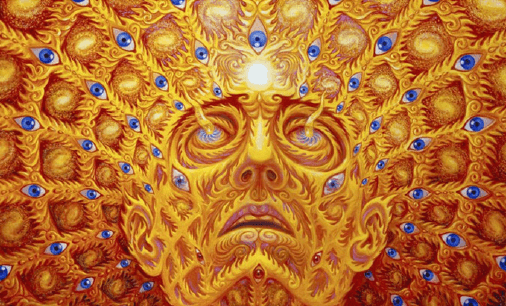 There’s a reason they call it the
“hard problem.” Consciousness:
Where is it? What is it? No one single
perspective seems to be able to answer
all the questions we have about consciousness.
Now Bernardo Kastrup
thinks he’s found one. He calls his
ontology idealism, and according to
idealism, all of us and all we perceive
are manifestations of something very
much like a cosmic-scale dissociative
identity disorder (DID). He suggests
there’s an all-encompassing universewide
consciousness, it has multiple
personalities, and we’re them.
Kastrup’s paper is an attempt to devise
an explanation for consciousness
that leaves no unanswered questions
behind as other commonly held
perspectives do, at least at our current
level of scientific knowledge. (Kastrup
is a computer engineer specializing in
A.I. and reconfigurable computing.)
There are a seemingly endless array
of ultimately unsatisfying isms
thrown at the problem of consciousness.
If you’ve got some time, have a
look at the Internet Encyclopedia of
Philosophy. Here, though, if only to
explain what panpsychism, the basis of
Kastrup’s idealism, isn’t, it’ll be helpful
to talk very briefly about ...
Read full text:
There’s a reason they call it the
“hard problem.” Consciousness:
Where is it? What is it? No one single
perspective seems to be able to answer
all the questions we have about consciousness.
Now Bernardo Kastrup
thinks he’s found one. He calls his
ontology idealism, and according to
idealism, all of us and all we perceive
are manifestations of something very
much like a cosmic-scale dissociative
identity disorder (DID). He suggests
there’s an all-encompassing universewide
consciousness, it has multiple
personalities, and we’re them.
Kastrup’s paper is an attempt to devise
an explanation for consciousness
that leaves no unanswered questions
behind as other commonly held
perspectives do, at least at our current
level of scientific knowledge. (Kastrup
is a computer engineer specializing in
A.I. and reconfigurable computing.)
There are a seemingly endless array
of ultimately unsatisfying isms
thrown at the problem of consciousness.
If you’ve got some time, have a
look at the Internet Encyclopedia of
Philosophy. Here, though, if only to
explain what panpsychism, the basis of
Kastrup’s idealism, isn’t, it’ll be helpful
to talk very briefly about ...
Read full text:
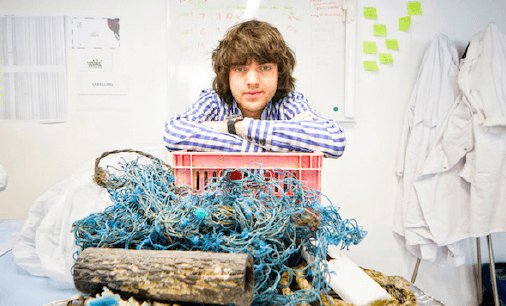
 Greenpeace has called out Oreo’s
parent company, Mondelēz International,
for not putting its money
where its mouth is when it comes to
eradicating deforestation and exploitative
business practices from its
supply chain.
On November 14, Greenpeace
revealed that it was delivering a fivefoot-
wide replica of an Oreo cookie to
Mondelēz International’s headquarters
in Deerfield, Illinois. The flavor? Deforestation.
The cookie model had its top
layer twisted off in iconic Oreo “twist,
lick, dunk” fashion to reveal a graphic
of a bulldozer tearing though a forest,
much to the distraught of its fleeing
animals. The truck it was transported
on came with the banner, “Tell Oreo
to Drop Dirty Palm Oil.” Even though
Mondelēz International announced
its commitment in 2010 to enforcing
a more eco-friendly supply chain
by 2020, Greenpeace argues that the
brand is far from achieving this goal.
According to the NGO, among 25
of the worst palm oil manufacturers
in Indonesia, 22 of these belong in
Mondelēz International’s supply chain
as of 2017.
Fast Company reports that between
2015 and 2017, these 22 palm oil
producers ravaged more than 70,000
hectares of rainforest in Indonesia and
Papua New Guinea. ...
Greenpeace has called out Oreo’s
parent company, Mondelēz International,
for not putting its money
where its mouth is when it comes to
eradicating deforestation and exploitative
business practices from its
supply chain.
On November 14, Greenpeace
revealed that it was delivering a fivefoot-
wide replica of an Oreo cookie to
Mondelēz International’s headquarters
in Deerfield, Illinois. The flavor? Deforestation.
The cookie model had its top
layer twisted off in iconic Oreo “twist,
lick, dunk” fashion to reveal a graphic
of a bulldozer tearing though a forest,
much to the distraught of its fleeing
animals. The truck it was transported
on came with the banner, “Tell Oreo
to Drop Dirty Palm Oil.” Even though
Mondelēz International announced
its commitment in 2010 to enforcing
a more eco-friendly supply chain
by 2020, Greenpeace argues that the
brand is far from achieving this goal.
According to the NGO, among 25
of the worst palm oil manufacturers
in Indonesia, 22 of these belong in
Mondelēz International’s supply chain
as of 2017.
Fast Company reports that between
2015 and 2017, these 22 palm oil
producers ravaged more than 70,000
hectares of rainforest in Indonesia and
Papua New Guinea. ...
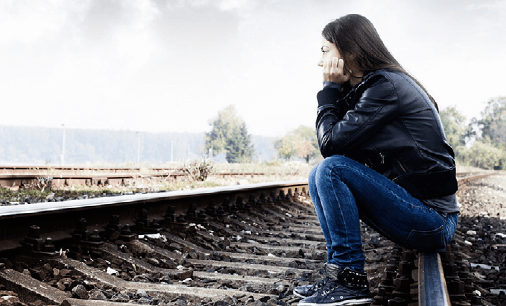 She was 16, he was 40. She told
herself it was a romantic affair. But
her body and mind would do strange
things when they were together.
Sometimes she felt as if she was separate
from her body, which would shake
and shake after seeing him. This was
a full-body shaking, more like a quake
than a shiver.
It took Marissa Korbel more than a
decade to view what had happened to
her not as an affair, but as assault. “I
really took all of the blame for it for at
least nine or ten years,” she says. With
years of therapy behind her, she’s
now a mother and an attorney for an
organisation in Oregon that advocates
for survivors of sexual assault.
Even today, Korbel finds herself
sometimes re-experiencing the bodily
dissociation that she first encountered
with her assaulter. Revisiting
this trauma is a way for her to try to
understand it. “I’m seeking sexual
experiences that overwhelm me, and
that make me basically leave my body,”
she explains matter-of-factly. “I have
a very complicated relationship with
dissociation because I understand that
it’s a marker of a trauma. And I know
that when I learned to do it, it wasn’t a
good thing.”
Korbel isn’t alone. A meta-analysis
of 28 studies of women and girls aged
14 and older who had had non-consensual
sex ...
Read full text:
She was 16, he was 40. She told
herself it was a romantic affair. But
her body and mind would do strange
things when they were together.
Sometimes she felt as if she was separate
from her body, which would shake
and shake after seeing him. This was
a full-body shaking, more like a quake
than a shiver.
It took Marissa Korbel more than a
decade to view what had happened to
her not as an affair, but as assault. “I
really took all of the blame for it for at
least nine or ten years,” she says. With
years of therapy behind her, she’s
now a mother and an attorney for an
organisation in Oregon that advocates
for survivors of sexual assault.
Even today, Korbel finds herself
sometimes re-experiencing the bodily
dissociation that she first encountered
with her assaulter. Revisiting
this trauma is a way for her to try to
understand it. “I’m seeking sexual
experiences that overwhelm me, and
that make me basically leave my body,”
she explains matter-of-factly. “I have
a very complicated relationship with
dissociation because I understand that
it’s a marker of a trauma. And I know
that when I learned to do it, it wasn’t a
good thing.”
Korbel isn’t alone. A meta-analysis
of 28 studies of women and girls aged
14 and older who had had non-consensual
sex ...
Read full text:
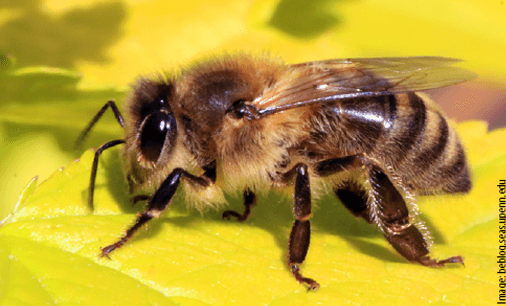 Science hasn’t been giving us a
tremendous amount of good news
these days. We’re speeding toward
climate catastrophe, for one. We’ve
screwed up the environment so badly,
it’s hard to even call it an environment
anymore. And that’s coming
back to bite (or sting) us: Bee populations,
which we rely on to pollinate our
crops, are plummeting.
But science is also coming to the
rescue, by gluing QR codes to bumblebees’
backs and tracking their movements
with a robotic camera. Researchers
have created a system that tracks
individual bees as well as the dynamics
of whole colonies exposed to imidacloprid,
a neurotoxin that belongs to
the infamous neonicotinoid group of
pesticides. The findings aren’t pretty, but they may go a long way in teasing
apart how neonicotinoids are ravaging
bees, and how we might save these
fliers. Neonicotinoids are the most
common class of insecticides globally.
“When we first started using them in
agriculture in particular, they passed
the initial tests of, Oh are they safe for
bees at the concentrations they're likely
to encounter in the field?” says Harvard
biologist James Crall, lead author on
a new paper in Science describing the
bumblebee-tracking technique.
But those tests weren’t exactly
thorough enough. “You might not see
a dead bee in 24 or 48 hours, but still
you're seeing important behavioral
shifts over time that lead to impaired ...
Science hasn’t been giving us a
tremendous amount of good news
these days. We’re speeding toward
climate catastrophe, for one. We’ve
screwed up the environment so badly,
it’s hard to even call it an environment
anymore. And that’s coming
back to bite (or sting) us: Bee populations,
which we rely on to pollinate our
crops, are plummeting.
But science is also coming to the
rescue, by gluing QR codes to bumblebees’
backs and tracking their movements
with a robotic camera. Researchers
have created a system that tracks
individual bees as well as the dynamics
of whole colonies exposed to imidacloprid,
a neurotoxin that belongs to
the infamous neonicotinoid group of
pesticides. The findings aren’t pretty, but they may go a long way in teasing
apart how neonicotinoids are ravaging
bees, and how we might save these
fliers. Neonicotinoids are the most
common class of insecticides globally.
“When we first started using them in
agriculture in particular, they passed
the initial tests of, Oh are they safe for
bees at the concentrations they're likely
to encounter in the field?” says Harvard
biologist James Crall, lead author on
a new paper in Science describing the
bumblebee-tracking technique.
But those tests weren’t exactly
thorough enough. “You might not see
a dead bee in 24 or 48 hours, but still
you're seeing important behavioral
shifts over time that lead to impaired ...

 This vibrant, flexible keyboard gives rock ‘n’ roll a
whole new meaning. Unroll the 49-key, 31" silicone strip and learn to play in a snap
thanks to the included play-by-color songbook. Roll it up to take it on the go or
store it until your next jam session. For ages 6.
store.moma.org
This vibrant, flexible keyboard gives rock ‘n’ roll a
whole new meaning. Unroll the 49-key, 31" silicone strip and learn to play in a snap
thanks to the included play-by-color songbook. Roll it up to take it on the go or
store it until your next jam session. For ages 6.
store.moma.org
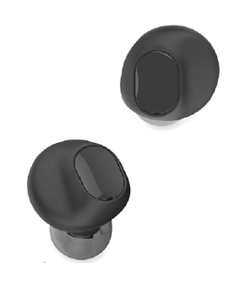 Earbuds with Stereo 3D
Sound. Provide a reliable, fast and consistent
connection, with up to 8 hours of
listening per charge.
Earbuds with Stereo 3D
Sound. Provide a reliable, fast and consistent
connection, with up to 8 hours of
listening per charge.
 7-in-1 foot & ankle
exercise system. You can help alleviate
plantar fasciitis, boost your balance
and more with this workout system.
www.thegrommet.com
7-in-1 foot & ankle
exercise system. You can help alleviate
plantar fasciitis, boost your balance
and more with this workout system.
www.thegrommet.com
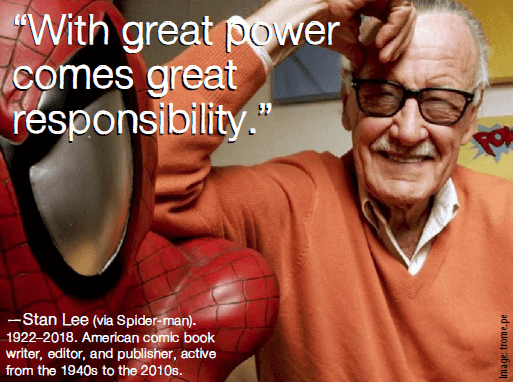
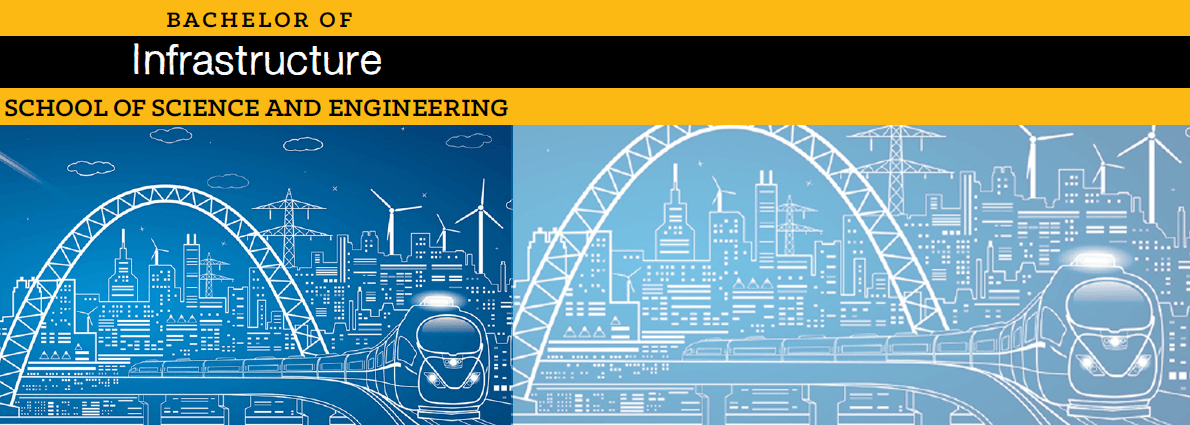 The Bachelor of Infrastructure
program is offered online via
distance learning. After evaluating
both academic record and life experience,
AIU staff working in conjunction
with Faculty and Academic Advisors
will assist students in setting up a
custom-made program, designed on
an individual basis. This flexibility to
meet student needs is seldom found
in other distance learning programs.
Our online program does not require
all students to take the same subjects/
courses, use the same books, or
learning materials. Instead, the online
Bachelor of Infrastructure curriculum
is designed individually by the student
and academic advisor. It specifically
addresses strengths and weaknesses
with respect to market opportunities
in the student’s major and intended
field of work.
Understanding that industry and
geographic factors should influence
the content of the curriculum instead
of a standardized one-fits-all design is
the hallmark of AIU’s unique approach
to adult education. This philosophy
addresses the dynamic and constantly
changing environment of working
professionals by helping adult students
in reaching their professional
and personal goals within the scope of
the degree program.
The Bachelor of Infrastructure
program is offered online via
distance learning. After evaluating
both academic record and life experience,
AIU staff working in conjunction
with Faculty and Academic Advisors
will assist students in setting up a
custom-made program, designed on
an individual basis. This flexibility to
meet student needs is seldom found
in other distance learning programs.
Our online program does not require
all students to take the same subjects/
courses, use the same books, or
learning materials. Instead, the online
Bachelor of Infrastructure curriculum
is designed individually by the student
and academic advisor. It specifically
addresses strengths and weaknesses
with respect to market opportunities
in the student’s major and intended
field of work.
Understanding that industry and
geographic factors should influence
the content of the curriculum instead
of a standardized one-fits-all design is
the hallmark of AIU’s unique approach
to adult education. This philosophy
addresses the dynamic and constantly
changing environment of working
professionals by helping adult students
in reaching their professional
and personal goals within the scope of
the degree program.
 Atlantic International University is accredited by the Accreditation Service for International
Schools, Colleges and Universities (ASIC). ASIC Accreditation is an internationally
renowned quality standard for colleges and universities. Visit ASIC’s Directory of Accredited
Colleges and Universities. ASIC is a member of CHEA International Quality Group
(CIQG) in the USA, an approved accreditation body by the Ministerial Department of the Home Office
in the UK, and is listed in the International Directory of the Council for Higher Education Accreditation
(CHEA). The University is based in the United States and was established by corporate charter in 1998.
Atlantic International University is accredited by the Accreditation Service for International
Schools, Colleges and Universities (ASIC). ASIC Accreditation is an internationally
renowned quality standard for colleges and universities. Visit ASIC’s Directory of Accredited
Colleges and Universities. ASIC is a member of CHEA International Quality Group
(CIQG) in the USA, an approved accreditation body by the Ministerial Department of the Home Office
in the UK, and is listed in the International Directory of the Council for Higher Education Accreditation
(CHEA). The University is based in the United States and was established by corporate charter in 1998.
 In some cases, accredited colleges
may not accept for transfer courses and degrees
completed at unaccredited colleges, and some
employers may require an accredited degree as
a basis for eligibility for employment. Potential
students should consider how the above may affect
their interests, AIU respects the unique rules and
regulations of each country and does not seek to
influence the respective authorities. In the event
that a prospective student wishes to carry out any
government review or process in regards to his
university degree, we recommend that the requirements
of such are explored in detail with the relevant
authorities by the prospective student as the
university does not intervene in such processes.
AIU students can be found in over 180 countries,
they actively participate and volunteer
in their communities as part of their academic
program and have allocated thousands of service
hours to diverse causes and initiatives. AIU
programs follow the standards commonly used by
colleges and universities in the United States with
regards to the following: academic program
structure, degree issued, transcript, and
other graduation documents.
AIU graduation documents can include
an apostille and authentication from the
US Department of State to facilitate their
use internationally.
In some cases, accredited colleges
may not accept for transfer courses and degrees
completed at unaccredited colleges, and some
employers may require an accredited degree as
a basis for eligibility for employment. Potential
students should consider how the above may affect
their interests, AIU respects the unique rules and
regulations of each country and does not seek to
influence the respective authorities. In the event
that a prospective student wishes to carry out any
government review or process in regards to his
university degree, we recommend that the requirements
of such are explored in detail with the relevant
authorities by the prospective student as the
university does not intervene in such processes.
AIU students can be found in over 180 countries,
they actively participate and volunteer
in their communities as part of their academic
program and have allocated thousands of service
hours to diverse causes and initiatives. AIU
programs follow the standards commonly used by
colleges and universities in the United States with
regards to the following: academic program
structure, degree issued, transcript, and
other graduation documents.
AIU graduation documents can include
an apostille and authentication from the
US Department of State to facilitate their
use internationally.
 The School of Business and Economics
allows aspiring and practicing
professionals, managers, and entrepreneurs
in the private and public sectors
to complete a self paced distance
learning degree program of the highest
academic standard.
The ultimate goal is to empower
learners and help them take advantage
of the enormous array of resources
from the world environment in order
to eliminate the current continuum of
poverty and limitations.
Degree programs are designed for
those students whose professional experience has been in business,
marketing, administration, economics,
finance and management.
The School of Business and Economics
allows aspiring and practicing
professionals, managers, and entrepreneurs
in the private and public sectors
to complete a self paced distance
learning degree program of the highest
academic standard.
The ultimate goal is to empower
learners and help them take advantage
of the enormous array of resources
from the world environment in order
to eliminate the current continuum of
poverty and limitations.
Degree programs are designed for
those students whose professional experience has been in business,
marketing, administration, economics,
finance and management.
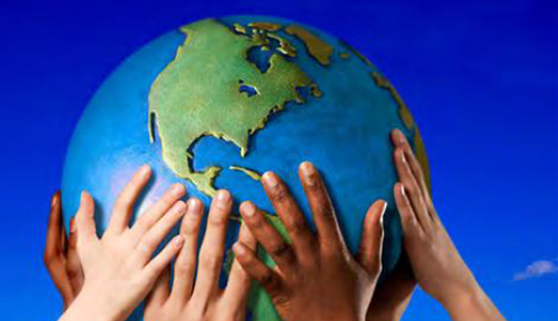 The School of Social and Human Studies
is focused on to the development of
studies which instill a core commitment
to building a society based on social and
economic justice and enhancing opportunities
for human well being.
The founding principles lie on the
basic right of education as outlined
in the Declaration of Human Rights.
We instill in our students a sense of
confidence and self reliance in their
ability to access the vast opportunities
available through information channels,
the world wide web, private, public,
nonprofit, and nongovernmental organizations in an ever expanding
global community.
Degree programs are aimed towards
those whose professional life has been
related to social and human behavior,
with the arts, or with cultural studies.
The School of Social and Human Studies
is focused on to the development of
studies which instill a core commitment
to building a society based on social and
economic justice and enhancing opportunities
for human well being.
The founding principles lie on the
basic right of education as outlined
in the Declaration of Human Rights.
We instill in our students a sense of
confidence and self reliance in their
ability to access the vast opportunities
available through information channels,
the world wide web, private, public,
nonprofit, and nongovernmental organizations in an ever expanding
global community.
Degree programs are aimed towards
those whose professional life has been
related to social and human behavior,
with the arts, or with cultural studies.
 The School of Science and Engineering
seeks to provide dynamic, integrated,
and challenging degree programs
designed for those whose experience
is in industrial research, scientific production,
engineering and the general
sciences. Our system for research and
education will keep us apace with the
twenty-first century reach scientific
advance in an environmentally and
ecologically responsible manner to allow
for the sustainability of the human
population. We will foster among our
students a demand for ethical behavior,
an appreciation for diversity, an understanding
of scientific investigation,
The School of Science and Engineering
seeks to provide dynamic, integrated,
and challenging degree programs
designed for those whose experience
is in industrial research, scientific production,
engineering and the general
sciences. Our system for research and
education will keep us apace with the
twenty-first century reach scientific
advance in an environmentally and
ecologically responsible manner to allow
for the sustainability of the human
population. We will foster among our
students a demand for ethical behavior,
an appreciation for diversity, an understanding
of scientific investigation,
 With access to a global catalog created and maintained collectively by more than
9,000 participating institutions, AIU students have secured excellent research
tools for their study programs.
With access to a global catalog created and maintained collectively by more than
9,000 participating institutions, AIU students have secured excellent research
tools for their study programs.